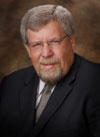 Wisconsin Lawyer
Wisconsin Lawyer
Vol. 84, No. 7, July 2011
Question
I often wonder how much coaching I can do when preparing a witness for a deposition. Are there rules that address this?
Answer
The Rules of Professional Conduct for Attorneys do not give specific guidance to lawyers on the scope of “coaching” that a lawyer can provide when preparing a witness to testify. Under SCR 20:3.3, Candor Toward the Tribunal, “a lawyer shall not knowingly offer evidence that the lawyer knows to be false. If a lawyer, the lawyer’s client, or a witness called by the lawyer, has offered material evidence and the lawyer comes to know of its falsity, the lawyer shall take reasonable remedial measures, including, if necessary, disclosure to the tribunal.” Also, paragraph (b) of SCR 20:3.4, Fairness to Opposing Party and Counsel, provides that a lawyer shall not “falsify evidence, counsel or assist a witness to testify falsely, or offer an inducement to a witness that is prohibited by law.”
Because the Rules of Professional Conduct do not deal with coaching other than laying out the absolute admonition that a lawyer must not offer false testimony and must correct false statements made by a witness, the parameters of appropriate coaching of witnesses is more a matter of competence and professionalism.
 Dean R. Dietrich, Marquette 1977, of Ruder Ware, Wausau, is chair of the State Bar Professional Ethics Committee.
Dean R. Dietrich, Marquette 1977, of Ruder Ware, Wausau, is chair of the State Bar Professional Ethics Committee.
It is well recognized that when a lawyer interviews prospective or anticipated witnesses, the lawyer can assist the witness to understand the nature of a proceeding in which the witness is giving testimony and even assist the witness to understand the nature and scope of the testimony that will likely be expected of the witness. Some observers would call this coaching, while others would suggest it is merely preparing the witness by explaining the nature of the proceedings and the activities that will take place during the proceedings. The boundary between helping a witness to prepare for and understand a proceeding and directing a witness to give certain testimony is certainly very imprecise and subject to a great deal of interpretation.
The Restatement of the Law (3rd) – the Law Governing Lawyers provides some guidance on the nature and scope of witness preparation. The comment to section 116, Interviewing and Preparing a Prospective Witness, describes activities that would be considered acceptable when a lawyer is preparing a witness. The comment provides as follows:
“In preparing a witness to testify, a lawyer may invite the witness to provide truthful testimony favorable to the lawyer’s client. Preparation consistent with the rule of this Section may include the following:
“Discussing the role of the witness and effective courtroom demeanor;
“Discussing the witness’s recollection and probable testimony;
“Revealing to the witness other testimony or evidence that will be presented and asking the witness to reconsider the witness’s recollection or recounting of events in that light;
“Discussing the applicability of law to the events in issue;
“Reviewing the factual context into which the witness’s observations or opinions will fit;
“Reviewing documents or other physical evidence that may be introduced; and
“Discussing probable lines of hostile cross-examination that the witness should be prepared to meet.
“Witness preparation may include rehearsal of testimony. A lawyer may suggest choice of words that might be employed to make the witness’s meaning clear. However, a lawyer may not assist the witness to testify falsely as to a material fact.”
Some lawyers would suggest that the above activities may cross the line from preparing a witness to coaching a witness. Other lawyers would say that limitations pertain only to encouraging false testimony or obstructing another party’s access to a witness. Lawyers should think carefully about the nature and extent to which they will prepare witnesses to give testimony: lawyers should not create testimony or create the memory that the witness will use to give testimony. The lawyer crosses the line by telling the witness what to say as testimony or creating a new set of memories that the witness relies on when giving testimony. Following the above guidelines should help the lawyer understand the limits of preparing a witness to testify.
Wisconsin Lawyer
